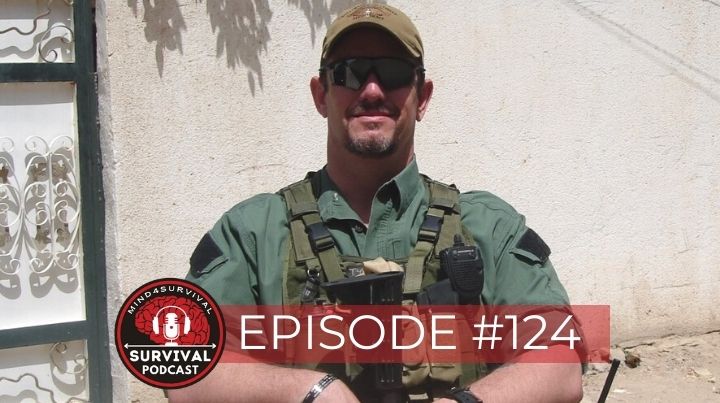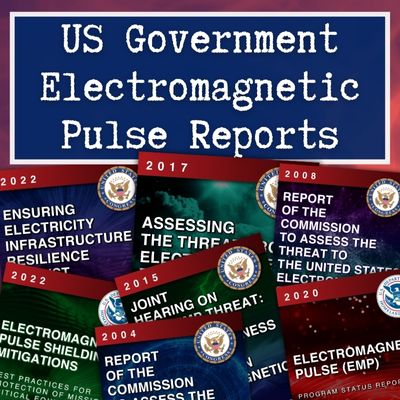What is Post Traumatic Stress Disorder (My PTSD Battle)


Podcast: Play in new window | Download
As preppers or as preparedness-minded people, we are readying ourselves for the worst SHTF scenarios.
We pack our bug-out bags, and we stock our pantries. We collect our guns and knives, and first-aid supplies. Some of us exercise so that we can outrun the zombie hordes. We think about how to secure our homes or bug-out locations against marauders to keep us, our family, and our friends safe.
But what are we doing to prepare ourselves for the mental toll these cataclysmic disasters will take on us?
Do we think that surviving is all we will need to do? Do we believe that everything will be roses once we come out on the other side of it? What about others that are going through the disaster along with us? Can you recognize PTSD in them?
In this episode, Brian talks with Dale Goodwin about his long-running battle with PTSD and how he has been able to find a way to live with the injury. He explains that this is an injury, a wound, and not just a mental disorder.
Brian is an advocate for PTSD awareness and shares his knowledge of the “why” many suffer from it.
What is Post-Traumatic Stress Disorder?
Post-traumatic stress disorder is an injury to the brain caused by experiencing or witnessing a terrifying event.
PTSD is your mind trying to protect you from getting hurt again. Your brain processes experiences and files them away.
If you cannot process that trauma, or if you experience many traumas happening one right after another, it doesn’t get filed away. It remains an active memory.
The Biology of it All
PTSD manifests itself in a variety of ways. Some may experience chest pains, others panic attacks, and others may feel completely different.
However, one way to know that you may have PTSD is understanding the “why” it happens.
The Brain Has Two Systems
In the front of your brain, behind your forehead, you’ll find the prefrontal cortex, which is responsible for rational thought.
The prefrontal cortex also plays a role in engaging the parasympathetic nervous system, which is essential for controlling sympathetic nervous system responses of the amygdala.
At the base of the brain, you will find the limbic system, which is responsible for emotions and memory formation. The limbic system contains the amygdala, which is responsible for detecting fear and engaging the sympathetic nervous system.
And, it’s our sympathetic nervous system that is responsible for our freeze, flight, or fight response.
In other words, when we perceive a grave threat, our sympathetic nervous system kicks in as part of our survival instinct. When our sympathetic nervous system kicks in, it works to override our rational thought.
So, when Godzilla turns the corner in front of us, our survival mechanism kicks in instinctually. It doesn’t want us to debate whether Godzilla will eat us. It wants us to survive.
So, the sympathetic nervous system shuts down our rational thought and forces us to hide, run, or fight.
The fact is that your emotional brain is designed to shut down the rational part of your brain to protect you from danger.
When danger happens, you don’t want your mind to take the time to rationalize what is going on. You want your limbic system to move your feet and get you out of there.
However, the more trauma you experience, the harder it becomes for your rational brain to take over when you’re not in danger.
How Post Traumatic Stress Works
Post Traumatic Stress is a result of our mind trying to protect us.
Our subconscious mind protects us by monitoring what’s happening around us. Our mind doesn’t register time and place. Instead, it registers things it can detect through our senses and associates what it detects with the traumatic event.
So, let’s assume you are involved in a traumatic car accident on a hot day while listening to your favorite song. With that the case, you may forever encounter stress while driving in a car. Moreover, you may experience even more stress if your favorite song begins to play while driving. Then, have all that happen on a hot day, and you may add even more stress to your experience.
In the end, to protect yourself from repeat dangers, your brain works to associate what it sensed during a traumatic event with what’s happening today.
When it begins associating similar conditions today with what happened in the past, it begins to engage the sympathetic nervous system.
In other words, based on past experiences similar to current experiences, your brain engages your freeze, flight, or fight response to help you survive what it perceives as a present threat.
The Brain Doesn’t Always Get It Right
Unfortunately, our brain doesn’t always get it right.
In Brian’s case, his brain signals danger when he’s in hot, desert environments. It’s signaling this due to his experiences on hot days in Iraq.
The fact is that there aren’t roadside bombs and bad guys trying to ambush Brian here at home in the United States.
What does happen, though, is his brain tries to protect him and signals to him through an uptick in his sympathetic nervous system that it senses a potentially dangerous situation.
It’s then on Brian to engage his rational mind and parasympathetic nervous system to calm down and override his sympathetic nervous system.
Sympathetic vs. Parasympathetic
So, how do the sympathetic and parasympathetic systems work?
An activated sympathetic nervous system results in cottonmouth, an increased heart rate, dilated pupils.
An activated parasympathetic nervous system results in hunger, decreased heart rate, constricted pupils, and increased salivation.
By understanding the physical signs and sensations, a person with post-traumatic stress can monitor whether their sympathetic nervous system is activated. And, when they find it triggered, they can check to see if the reason its activation is valid.
If the reason they are activated is not valid, they can then begin working to deactivate their sympathetic response.
Using these physical signs as guides allows you to recognize when your sympathetic nervous system is in control so that you can work on engaging the parasympathetic nervous system.
Brian explains that one of his coping mechanisms is to take a cold shower when unnecessarily activated. The cold shower can sometimes engage his parasympathetic system enough to switch off the sympathetic system.
Who Does PTSD Affect?
A group of people we most commonly associate with being affected by PTSD are our veterans.
We have all seen the stories about the number of veterans that are committing suicide as a result of their untreated PTSD. And while we usually associate post-traumatic stress disorder with the military or with veterans, those are not the only people that can suffer from it.
PTSD can affect everyone. The fact is that not all people exposed to the same traumatic experience may wind up with PTSD.
We are all exposed to traumatic situations during our lifetimes. It’s a part of being human.
Based on studies done by the Veterans Administration, Brian estimates that 10 – 20 percent of people across our society may have PTSD due to some trauma they have experienced.
Is There a Cure?
There is no magic pill you can throw at it. PTSD doesn’t magically go away. And you don’t just have it sometimes.
If you have it, you have it always.
Drugs, alcohol, pills just mask the pain. When the effects wear off, the pain is still there. The trauma remains.
Then What Help is Available for PTSD?
The cure for the pain, is the pain. ~Rumi
Caring for PTSD takes therapy.
More than that, it takes a therapist that truly understands how it works and how to help you get to the core of the memories and help you process them.
This isn’t a healing process that can be done during a weekly visit or two. You don’t want to spend an hour uncovering your traumas so you can deal with them, only to be released into society while you’re in a bad place.
The healing requires time and focus and work.
Brian credits Deer Hollow Recovery in Draper, Utah, with saving his life.
He suggests anyone struggling with PTSD contact their insurance company or organizations that can help. Please find out how much they will cover so you can get the help you need.
Get the Word Out
This episode is extremely important because we live in a trauma-driven world.
If you know someone or the loved ones of someone who has PTSD that can benefit from hearing this, please share it with them.
We are losing too many of our veterans, friends, and peers to the deep dark hole that is PTSD.
Knowledge is power. Let’s make sure they have all the tools they need to win this fight.
Do you have experience with PTSD? Tell us your thoughts in the comments below.
Episode 124 Downloads:




Join Mind4Survival!
Stay informed by joining the Mind4Survival! 100% Secure! 0% Spam!
Follow Us!
Affiliate Disclosure
Mind4Survival is a free, reader-supported information resource. If you make a purchase through our link, we may, at no cost to you, receive an affiliate commission.


